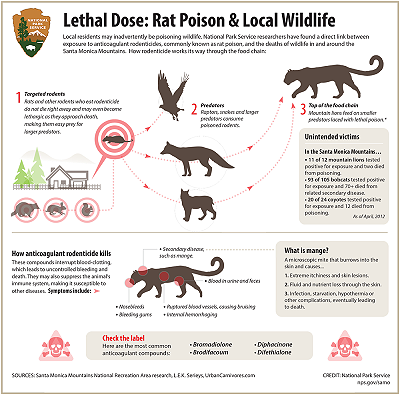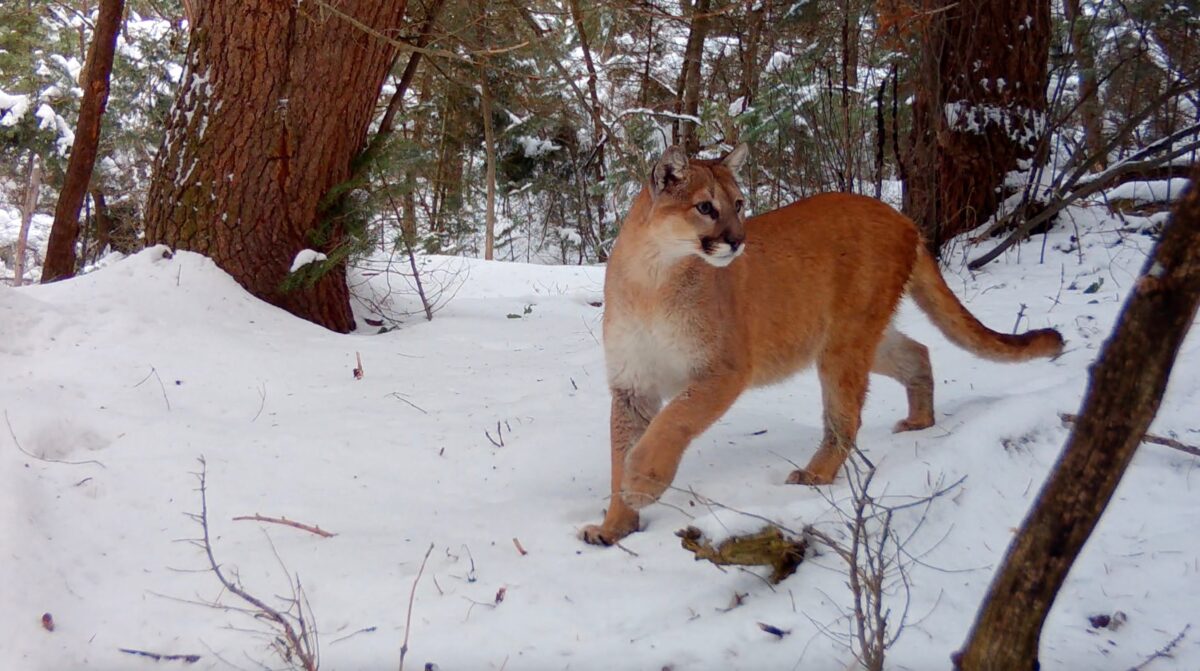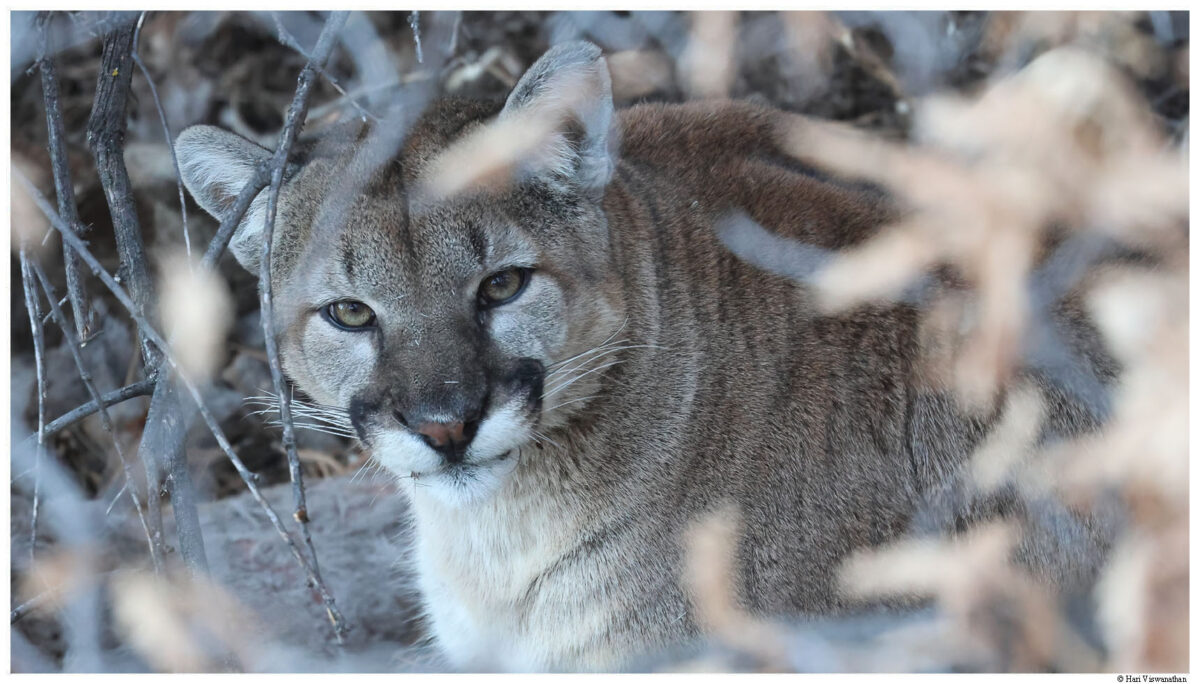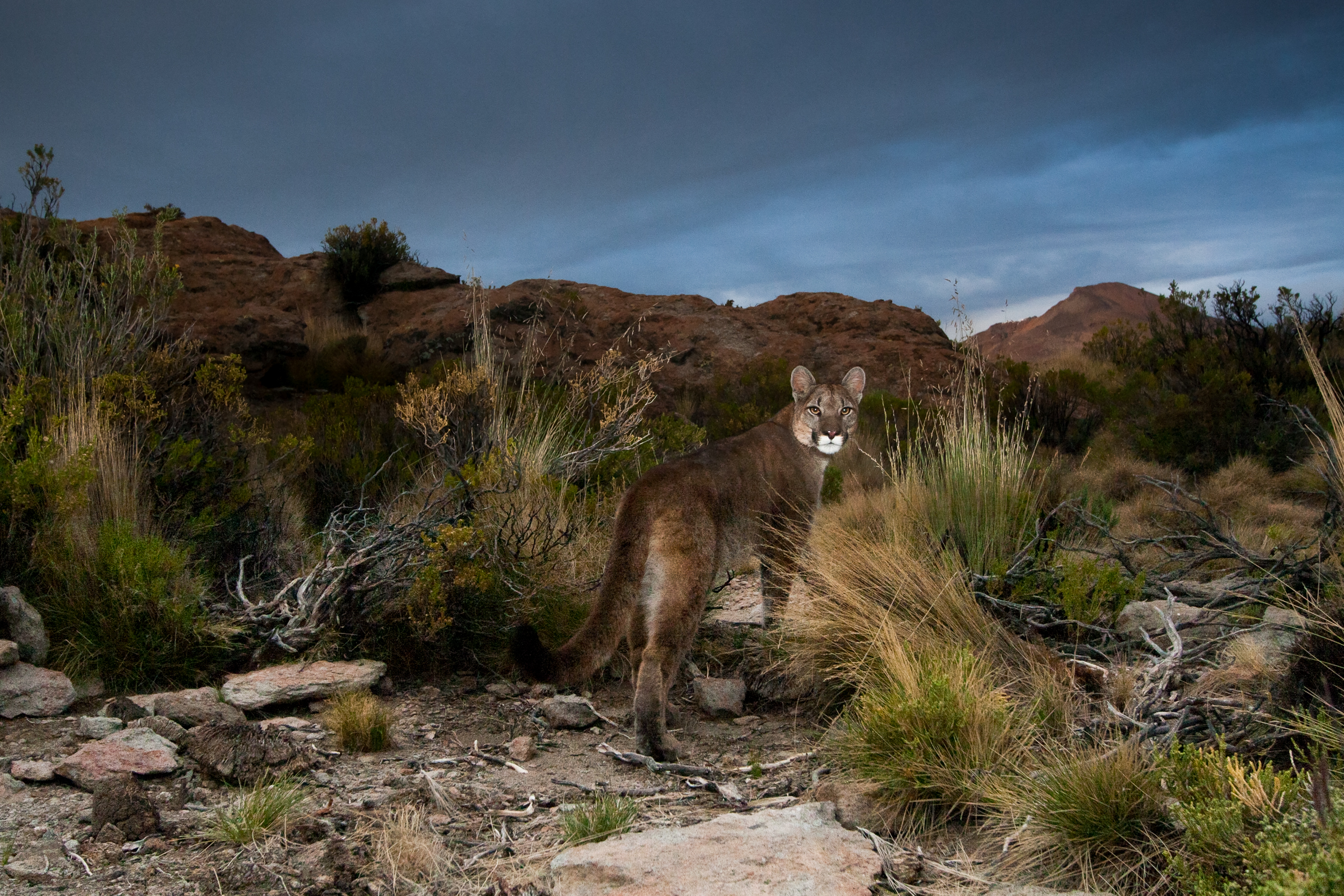 Sacramento, CA – By signing the California’s new rodenticide moratorium today, Governor Gavin Newsom has extended a lifeline to some of the state’s threatened and endangered species. The Mountain Lion Foundation is celebrating the much-anticipated signing of Assembly Bill 1788, authored by Assemblyman Richard Bloom (D-Santa Monica) and supported by more than two dozen animal welfare and environmental protection organizations. The bill passed the Senate and the Assembly with strong votes (23-7 and 53-17, respectively) in the waning hours of this year’s legislative session. The new law prohibits most uses of second-generation anticoagulant rodenticides (SGARs) statewide.
Sacramento, CA – By signing the California’s new rodenticide moratorium today, Governor Gavin Newsom has extended a lifeline to some of the state’s threatened and endangered species. The Mountain Lion Foundation is celebrating the much-anticipated signing of Assembly Bill 1788, authored by Assemblyman Richard Bloom (D-Santa Monica) and supported by more than two dozen animal welfare and environmental protection organizations. The bill passed the Senate and the Assembly with strong votes (23-7 and 53-17, respectively) in the waning hours of this year’s legislative session. The new law prohibits most uses of second-generation anticoagulant rodenticides (SGARs) statewide.
“By signing this bill, Governor Newsom has taken a bold step to prioritize wildlife health in the face of many growing pressures like climate change, wildfires, habitat fragmentation, and vehicle collisions, to name a few,” said Mountain Lion Foundation CEO, Debra Chase. “By pulling these four highly toxic rat poisons from the hands of pest control operators, California is giving sensitive species like mountain lions a bit of a fighting chance.”
The law puts a moratorium on the use of first- and second-generation rodenticides while the Department of Pesticide Regulation works to deliver a definitive study of the poisons’ impacts on imperiled wildlife such as mountain lions. While final study results may take years to produce, supporters say the ban buys valuable time for California mountain lions currently under consideration for threatened species designation. The California Fish and Game Commission voted in April to advance the lions’ candidacy under the state’s Endangered Species Act, citing evidence that some of the state’s regional subpopulations face possible extinction from the impact of low genetic diversity and high human-caused mortality.
Last month, National Parks Service researchers confirmed that a mountain lion and a bobcat each died in the Santa Monica Mountains as a direct result of rodenticide poisoning. Biologists have documented the presence of anticoagulant rodenticide compounds in 26 out of 27 local mountain lions they have tested, including in a three-month-old kitten. “Every mountain lion is important to the gene pool. A mountain lion lost to rodenticides is tragic, avoidable, and meaningful,” Chase said, adding that the removal of second-generation anticoagulants from consumer use in 2014 failed to decrease the rate of wildlife poisoning, which pointed to the need to remove the poisons from commercial use as well.



 Facebook
Facebook Twitter
Twitter Send Email
Send Email


